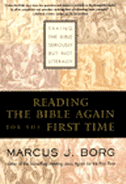COMMENTS
|
SHEKHINAH: God's indwelling presence, conceived
as female. Here is an excerpt from Rodger
Kamenetz's Stalking Elijah, (1998 Harper
San Franscisco) where Rabbi Judith Halevy
enjoins some of the special perspectives
and difficulties of a women in theJewish
tradition. |
|
|
Apart from the Torah, Judith's favourite
teaching texts are the tales of Rabbi Nachman,
... " The Beggar with the Crooked Neck."
At one level, it's simply the story of two
birds. "The female was lost," Judith
told me, "and the male went to look
for her. He searched for her and she searched
for him. They searched for one another for
a very long time, until they got comletely
lost."
The two birds symbolize many
things. They
are God and the Shekhinah; the
Shekhinah
goes into exile with the Jewish
people at
the time of the destruction of
the Second
Temple. T;hey are also the two
cherubs on
the ark of the covenant, the
small box or
coffer at the heart of the mishkan
that carries
the tablets of the covenant.
Aryeh Kaplan comments that, "As
long
as the ark with the cherubs stood
in the
Temple, the relationship between
the Holy
One and the Shekhinah was perfect,
and prophecy
could exist. However, after the
Temple was
destroyed, and the ark hidden,
prophecy ceased.
The concept of bringing together
the two
birds is thus that of reuniting
the Holy
One and His Shekhinah wwhich
is the redemption."
Beautiful - but for me, as for Judith, the
question is how to make this reuniting real
today." |
|
| ... an exercise is then described whereby
students are paired up and share weeks of
working together. Then they are brought together
and she teaches of ... |
... the pain of loss, displacement, exile.
She described these broken partners calling
to one another.
"Everyone is blindfolded," hse
said. "I tell them, "Find your
partner in the room by sound.""
The students wander, calling to one another
in the welter of competing sounds. "Ach,"she
said, "incredible longing! At the end
there's silence; in that silence the Holy
One comes. At moments in this room the holy
spirits are here. As that last class ended,
for twenty-five minutes, no one spoke, no
one moved." |
|
C.S. Lewis in The Problem of Pain (Collins,
London, 1940) makes an interesting division
of the origins of suffering. In Ch 6 Human
Pain, He later attempts a Christian answer
to Job. |
|
|
... pain is inherent in the very existence
of a world where souls can meet. ... and
this perhaps, accounts for four-fifths of
the sufferings of men. It is men, not God,
who have produced racks, whips, prisons,
slavery, guns, bayonets, and bombs; it is
by human avarice or human stupidity, not
by the churlishness of nature, that we have
poverty and overwork. But there remains,
none the less much suffering which cannot
thus be traced to ourselves." |
|
|
C.G.Jung in Answer to Job (1954, Bollingen)
speaks with the special insight of one of
the founders of modern psychology. |
|
|
Faith is certainly right when it impresses
on man's mind and heart how infinitely
far
away and inaccessible God is;
but it also
teaches his nearness, his immediate
presence,
and it is just this nearness
which has to
be empirically real if it is
not to lose
all significance. Only that which
acts upon
me do I recognize as real and
actual. But
that which has no effect upon
me might as
well not exist. The religious
need longs
for wholeness, and therefore
lays hold of
the images of wholeness offered
by the unconscious,
which, independently of the conscious
mind,
rise up from the depths of our
psychic nature."
(end 19)
"...even the enlightened
person remains
what he is, and is never more
than his own
limited ego before the One who
dwells within
him, whose form has no knowable
boundaries,
who encompasses him on all sides,
fathomless
as the abysms of the earth and
vast as the
sky." (end 20) |
|
|



